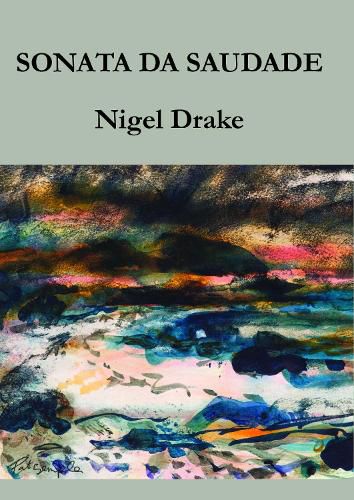Readings Newsletter
Become a Readings Member to make your shopping experience even easier.
Sign in or sign up for free!
You’re not far away from qualifying for FREE standard shipping within Australia
You’ve qualified for FREE standard shipping within Australia
The cart is loading…






This title is printed to order. This book may have been self-published. If so, we cannot guarantee the quality of the content. In the main most books will have gone through the editing process however some may not. We therefore suggest that you be aware of this before ordering this book. If in doubt check either the author or publisher’s details as we are unable to accept any returns unless they are faulty. Please contact us if you have any questions.
This book defies classification in that, while it is a deeply poetic depiction of two contrasting locations - the crowded, bustling Lisbon during the final years of dictatorship in the early 1970s and the transitioning years to democracy after the April Revolution of 1974, and the austere but beautiful environment of Northern Scotland, it is also a philosophical discourse on the nature of freedom and artistic endeavour, where imagination may lead towards understanding and purpose in life.
A clue to the deeper meaning of this book must lie in its title. Like a sonata, the book has several movements, for a soloist, or for his small ensemble. There is meditation here on the solitude of the "soloist", and it is in the depiction of the members of his "ensemble", his philosophical interlocutors, that the author displays fictional elements that reveal his engagement with Portuguese literary culture. The more important term is the Portuguese-Galician word saudade which signifies a deep yearning for a lost time, and for the people who inhabited that time, and have been lost or scattered. It is a paradox of saudade, however, that it is also a poignant longing for a past in which a possible future might be hatched, an ideal that might lead to a greater understanding of the world and the greater possibility of freedom. Hence the author's saudade for the dying years of the old regime, and the early years after the Revolution before compromises and individual interests, or social change, put an end to the purity of a regained political freedom, and even, he suggests, for the first years in the North of Scotland, a time which heralded a new project in his life, and therefore a renewed pursuit of freedom. Inherent in the notion of saudade is the consciousness of the passing of time and the gradual tapering off of future. There are, of course, moments of solace: the concrete tasks of looking after a Highland acre, the observation of the changing seasons. This is a beautiful, poetic piece of writing that will lure you into places that you may think you know, and into thoughts about human existence, notably exile, belonging, compromising one's freedom, that are sometimes disturbing and sometimes consoling.
$9.00 standard shipping within Australia
FREE standard shipping within Australia for orders over $100.00
Express & International shipping calculated at checkout
This title is printed to order. This book may have been self-published. If so, we cannot guarantee the quality of the content. In the main most books will have gone through the editing process however some may not. We therefore suggest that you be aware of this before ordering this book. If in doubt check either the author or publisher’s details as we are unable to accept any returns unless they are faulty. Please contact us if you have any questions.
This book defies classification in that, while it is a deeply poetic depiction of two contrasting locations - the crowded, bustling Lisbon during the final years of dictatorship in the early 1970s and the transitioning years to democracy after the April Revolution of 1974, and the austere but beautiful environment of Northern Scotland, it is also a philosophical discourse on the nature of freedom and artistic endeavour, where imagination may lead towards understanding and purpose in life.
A clue to the deeper meaning of this book must lie in its title. Like a sonata, the book has several movements, for a soloist, or for his small ensemble. There is meditation here on the solitude of the "soloist", and it is in the depiction of the members of his "ensemble", his philosophical interlocutors, that the author displays fictional elements that reveal his engagement with Portuguese literary culture. The more important term is the Portuguese-Galician word saudade which signifies a deep yearning for a lost time, and for the people who inhabited that time, and have been lost or scattered. It is a paradox of saudade, however, that it is also a poignant longing for a past in which a possible future might be hatched, an ideal that might lead to a greater understanding of the world and the greater possibility of freedom. Hence the author's saudade for the dying years of the old regime, and the early years after the Revolution before compromises and individual interests, or social change, put an end to the purity of a regained political freedom, and even, he suggests, for the first years in the North of Scotland, a time which heralded a new project in his life, and therefore a renewed pursuit of freedom. Inherent in the notion of saudade is the consciousness of the passing of time and the gradual tapering off of future. There are, of course, moments of solace: the concrete tasks of looking after a Highland acre, the observation of the changing seasons. This is a beautiful, poetic piece of writing that will lure you into places that you may think you know, and into thoughts about human existence, notably exile, belonging, compromising one's freedom, that are sometimes disturbing and sometimes consoling.